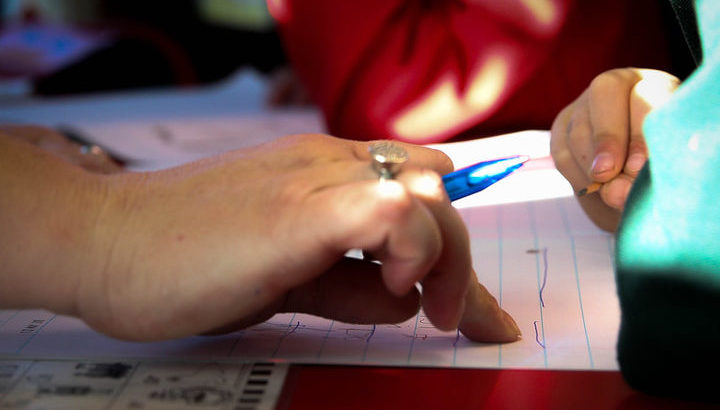Nueva Zelanda/Octubre de 2017/Fuente: RNZ
Resumen: El Instituto Educativo ha dicho a los maestros de primaria que se preparen para la batalla industrial de sus vidas, mientras que a los miembros de la Asociación de Maestros de Primaria se les ha instado a exigir un aumento inmediato del salario del 5 por ciento para contrarrestar la escasez de personal. Incluso se ha hablado de una huelga, aunque los sindicatos todavía están lejos de finalizar sus reclamaciones y mucho menos iniciar negociaciones con el Ministerio de Educación. Por supuesto, las conversaciones duras son baratas cuando las conferencias sindicales se están preparando para las negociaciones de convenios colectivos, y la realidad es que las aspiraciones de «recuperación» en los últimos tiempos han fracasado en los asentamientos, con aumentos del 1 o 2 por ciento al año. Hace sólo dos años, el PPTA buscó un aumento del 5 por ciento del salario, la mayor parte como una recuperación de la inflación, y terminó estableciéndose un poco más del 2 por ciento al año en tres años. Era menos de lo que el sindicato pretendía, pero dijo que sigue siendo uno de los asentamientos más altos del sector público en ese momento.
The Educational Institute has told primary teachers to prepare for the industrial battle of their lives while members of the Post Primary Teachers Association have been urged to demand an immediate 5 percent pay rise to counter staff shortages.
There’s even been talk of strike action, though the unions are still some way from finalising their claims let alone beginning negotiations with the Education Ministry.
Of course tough talk is cheap when union conferences are preparing for collective agreement talks, and the reality is that aspirations for «catch-up» pay rises in recent times have fizzled out in settlements providing increases of 1 or 2 percent a year.
Just two years ago the PPTA sought a 5 percent pay rise, most of it as a catch-up with inflation, and ended up settling for a little over 2 percent a year over three years. It was less than the union was aiming for, but it said it was still one of the highest settlements in the public sector at the time.
And the last time teachers went on strike was 2010 when secondary teachers fighting for a 4 percent rise refused to teach certain year levels on certain days. They were forced to abandon that battle in 2011 and accept a rise of 1.6 percent a year for two years after the Christchurch earthquake made their demands untenable.
So will next year’s talks be any different?
There’s the same complaints about pay rates and workloads as in previous years, but this time around union leaders are hoping the teacher shortages, which some principals say are a crisis, will give them extra leverage.
As the president of the PPTA, Jack Boyle, said: «There just aren’t enough of us».
Boyle argues that teachers’ pay and conditions are the key to attracting more talented people to teaching and keeping them there.
Certainly teachers are paid less than other people with tertiary qualifications. According to OECD figures, primary school teachers’ pay after 12 years’ service is 86 percent of the earnings of other New Zealanders’ with tertiary education and for secondary teachers the figure is 94 percent.
That’s equal to the average for the OECD and the figure for primary teachers improves to 90 percent if the comparison is to people with a similar level of education.
In addition, the PPTA has calculated that secondary teachers earning $75,949 at the top of the pay scale are paid 1.5 times the average median income, down from 1.8 in 2004.
Whether the union will seek to restore that relativity – which would require a pay rise of about $11,000 or 14.5 percent at the top of the scale – remains to be seen.
Whatever the unions seek, their success is likely to hinge not so much on the rights and wrongs of their case, but on the extent to which their members’ willingness to take industrial action out-matches the government’s resolve to keep a lid on spending.
PPTA members have been told to prepare financially for next year’s industrial campaign while the NZEI’s national secretary, Paul Goulter, told delegates at the union’s conference in Rotorua to «commit to taking on the biggest industrial fight in our professional lifetimes».
«It will most likely go to the wall, we will most likely be looking down the barrel of industrial action,» Mr Goulter said.
If it comes to that, the NZEI will be tapping a well of discontent that appears to run deep among primary school teachers and principals.
Many have a strong dislike of the national standards in reading, writing and maths, coupled with a growing distrust of the government’s big-ticket education policy, the Communities of Learning.
They said the demands on teachers were unrealistic and were driving many out of the profession, a complaint echoed by secondary teachers too.
All of which means both the PPTA and the NZEI will enter next year’s pay talks knowing they can turn their fighting talk into real action.
Fuente: http://www.radionz.co.nz/news/national/340946/teachers-gearing-up-for-pay-battles






 Users Today : 160
Users Today : 160 Total Users : 35459755
Total Users : 35459755 Views Today : 306
Views Today : 306 Total views : 3418278
Total views : 3418278